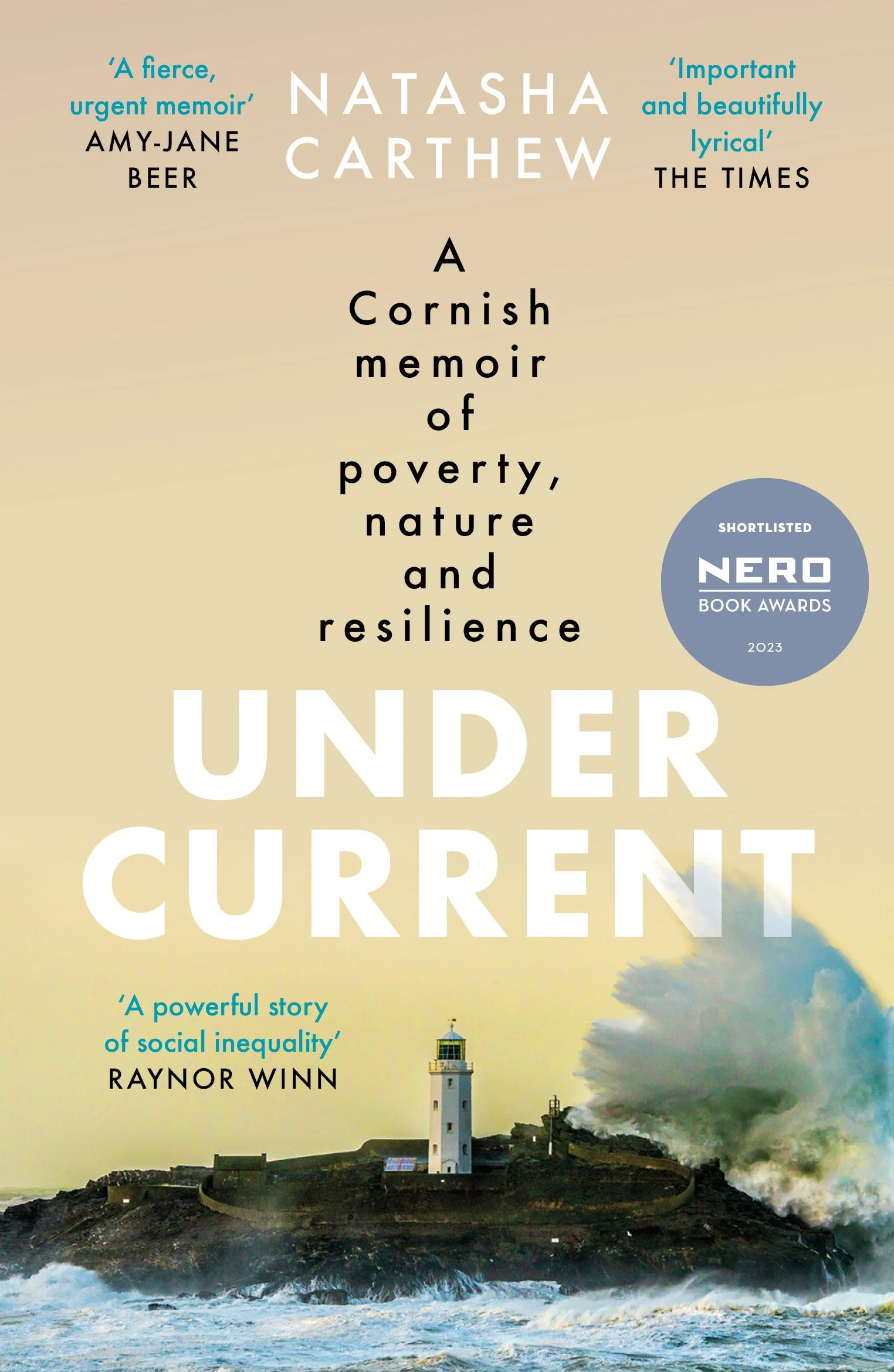Acclaimed writer, poet and activist Natasha Carthew’s fierce and powerful new non-fiction title, ROUGH EDGES: WHERE LAND MEETS WATER, THE UNTOLD STORIES OF COASTLINE COMMUNITIES has been acquired by Sceptre. Editorial Director at Sceptre, Charlotte Humphery will publish the book after Hannah Black acquired UK and Commonwealth rights (exc. Canada) from Juliet Pickering. ROUGH EDGES will be available in in hardback, export trade paperback, ebook and audio digital download on 4 June 2026.
Following on from Natasha’s Nero Prize shortlisted memoir, UNDERCURRENT, ROUGH EDGES is a rallying cry for the beauty and importance of our coast and its people. Beyond the picture postcards, Britain’s coastal communities are suffering. Crowds flood the beaches during summer heatwaves, but quickly vanish again, leaving behind litter and unstable seasonal jobs. Seaside property is in high demand but affordable only for landlords and gentrifiers. The cost-of-living crisis and the ongoing pains of austerity trap those at the vulnerable edges of our nation in poverty.
Having grown up in rural Cornwall, Natasha Carthew leaves the county in search of a new home. Travelling the country and exploring the villages, towns and cities of our coast, she meets the people fighting to keep these places alive. With fierce compassion, she shares their voices and their stories.
Charlotte Humphery says: ‘Natasha is a remarkable force on the page and in the world, and I’m proud to be working with her on this vital new book. Whether exploring coastal cities or walking country paths, she traces economic shifts, the cost of austerity and considers the past and the future of these places under threat by climate change, gentrification and political expediency. Journeying across the country, she gives voice to those often ignored and finds hope in the persistence of coastal communities and those who live on our nation’s edges.’
Natasha Carthew says: ‘I’m delighted to be able to call Sceptre the home for my new non-fiction ROUGH EDGES, and I couldn’t wish for anyone better to guide me along the urban edges of our coastline than Charlotte, an editor who is a compassionate, considerate and curious, ensuring that the voices of our nation, especially those of the working-class, are heard loud and clear.’
About Natasha Carthew
Natasha Carthew is a Cornish working-class writer, poet and activist. She is the author of ten books, most recently UNDERCURRENT: A CORNISH MEMOIR OF POVERTY, NATURE AND RESILIENCE (2023), which was shortlisted for the non-fiction prize at the inaugural Nero Book Awards. She has also contributed to HAG: FORGOTTEN TALES (2020) and WOMEN ON NATURE: 100+ VOICES ON PLACE, LANDSCAPE & THE NATURAL WORLD (2021) and BOG PEOPLE: A WORKING-CLASS ANTHOLOGY OF FOLK HORROR (2025).
Natasha has written extensively on nature and socio-economics, and frequently discusses how authentic rural working-class writing is represented, for several publications and programmes including BBC Radio 3, BBC Radio 4, The Guardian, The Bookseller, Book Brunch, The Big Issue and The Economist.
Natasha is also the Founder and Director of The Working Class Writers Festival and Common Ground Nature Prize for Working Class Writers.
Praise for Natasha Carthew
‘Natasha writes with a vivid, imagistic language’ – The Financial Times
‘Carthew is an elegantly lyrical writer’ – The Independent
‘Gripping stuff, Carthew’s prose has a startling ferocity’ – The Telegraph
‘Carthew’s is a different voice: sinewy and inventive’ – Patrick Gale
‘The rhythm of the language is hypnotic, and the powerful imagery of Natasha’s prose takes over. The raw energy and beauty of the landscapes are particularly well-evoked’ – Daily Mail
‘A real thing of beauty. The innovative structure and striking illustrations combine to create a verbal and visual feast. The reader feels like they are down in the darkness of mine and eavesdropping on the past’ – Cathy Rentzenbrink
‘Carthew’s writing is raw, uncompromising and intensely lyrical’ – Bookanista
‘Rough and taciturn and frank and, at times, utterly shocking. But Natasha’s writing is also deeply, deeply intimate’ – The Bookbag



